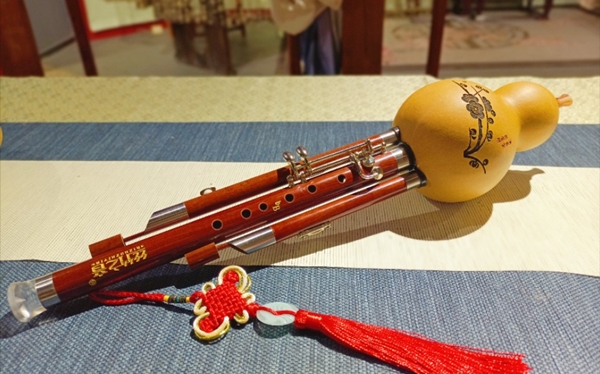Analysis of hulusi playing pronunciation skills: key points, difficulties and matters needing attention
As a kind of wind instrument with national characteristics, fenugreek has beautiful timbour and rich and varied playing techniques, among which the pronunciation technique is one of the basic skills that every fenugreek lover must master. The following are the questions and practical points that need to be paid attention to when the hulusi is played.

First, the basic concept and principle of pronunciation
Enunciation, also known as staccato or single spit, is a quick, short pronunciation in hulusi playing, forming a clear, granular effect. When playing fenugreek, the action similar to the "tu" sound is formed through the instant air blocking and air pumping of the tip of the tongue and the roof of the mouth, so that there is an obvious pause and continuity between the notes.
second. Correct posture and practice of pronunciation
1. Mouth shape and tongue position: Keep the mouth relaxed when playing, gently push the tip of the tongue against the gap between the lower gum and the bottom of the mouth, and quickly raise and press the tip of the tongue to complete the pronunciation.
2. Articulation strength and speed: The initial practice should be carried out at an even speed and moderate strength, avoid being too violent or too light, to ensure that each note is clear and coherent.
3. Connection transition: When playing continuous pronunciation, pay attention to the connection between each note, so that there should be a clear sense of disconnection, and maintain the fluency of the overall melody.
third. Precautions for pronunciation practice
1. Breathing control: Good breathing control is the basis of playing the sound, to ensure that there is enough breath supply, and to do a good job of breathing in the interval, to avoid fuzzy timbre and unstable rhythm caused by insufficient breath.
2. Practice step by step: When you first come into contact with pronunciation skills, you can start with simple scales or short pieces of practice, and then try continuous pronunciation paragraphs after mastering note by note.
3. Patience and meticulousness: Mastering the pronunciation requires time and patience, repeated practice, careful feeling of the movement of the tongue muscles, and strive to achieve the strength, speed and intonation of each pronunciation are just right.
fourth. Overcome common problems
1. Unclear notes: May be due to the tip of the tongue is not in place or poor breath control caused by the need to strengthen practice in these two aspects.
2. Unstable rhythm: The initial practice may be caused by uneven pronunciation speed, and a stable rhythm can be cultivated by using a metronome to assist practice.
To sum up, fenugreek playing and articulation is a skill that needs careful cultivation. Only through scientific and reasonable practice methods can we truly master this skill and bring more expressive force and vivid music picture to fenugreek performance.
 渝公网安备 50010702504639号
渝公网安备 50010702504639号